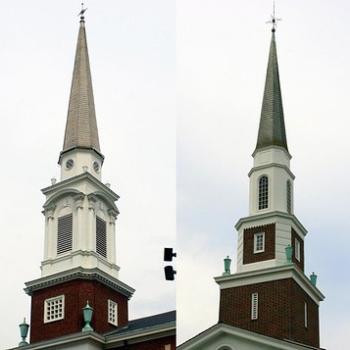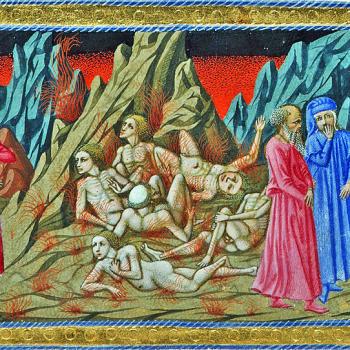Saturday afternoon while working on my notes for LDS Sunday School study, I was interrupted by two phone calls, both offering me something free.
The first was from an older gentleman who sometimes attends our congregation. He used to live in our ward (i.e., parish), but a few years ago he moved into a nearby assisted-living apartment for the elderly. Though I've known him by sight for years, I doubt that we have exchanged more than a few words. We are acquaintances, but not more than that.
But he called asking, "Would you like me to wash your windows for free?" I was caught off guard and hesitated. My hesitation made him explain further: "I like to do things for people and I enjoyed it when you taught Sunday School. So I thought I'd wash your windows if you don't mind."
I wish I could say that modern, semi-urban paranoia didn't set it, that I didn't wonder, "What does he want?" "Can I trust him?" It did set in, but I kept it in check and we made an appointment for this week. Speaking with another member of the congregation I learned that this is something that he has done for others more or less randomly, something that brings him pleasure. For this man, humility, gratitude, and charity are inextricable. They are the lens through which he sees the world and those around him.
The second phone call, not more than ten minutes after the previous one, was from someone younger: "We are looking for advertising in your area and would like to install a wireless security system for free if you'll only allow us to put a small sign in your yard with our name on it."
Obviously I know nothing about this man personally. He may be a fine, good person just trying to make a living in difficult times. But his offer was a lie and I could hear that it was a lie. It was in his voice. The experience of others with similar supposedly free gifts helped me hear it. Perhaps I could hear it because, being a good person, his voice betrayed him. In any case, I knew as he spoke that what he said was a lie. The company this man works for, if not the man himself, sees the world through a lens in which there are only winners and losers, a world devoid of grace and, so, also devoid of charity and gratitude.
This man's offer was a variation on Nibley's first employer, the one who will give me a job so that I can earn my lunch, a job that drives me further and further into debt. With this variation, I am promised a free lunch. All I have to do is advertise for him. And, probably, all I have to do is sign a multi-year contract for monthly service of the "free" equipment, the cost of which is built into the monthly price. The penalty for breaking that contract to go with another company would be hefty. Were I to accept this gift, I would find it difficult ever to be rid of it.
This offer of something "free" is anything but a similitude of God's grace. Instead it is a similitude of the bondage of sin. In contrast, the first offer to wash my windows is both a similitude of divine grace and a call to repentance of the most gentle kind.
The brother who offered to wash my windows had no conscious intention of calling me to repentance. I doubt that he has thought much about his motives. It is something that seems right. It is something he enjoys doing. Those who appreciate what he does may give him a few dollars, but he doesn't do it for the money, though surely he is grateful if they do. He didn't consciously call me to repent, to change direction in my life. He did so by his life.
For this brother, the virtues of life—prudence, justice, temperance, courage, faith, hope, charity, gratitude, kindness, humility, and whatever else you wish to add—are not psychological attitudes. Those who have a virtue have different psyches than those who don't, but the difference in psyche is a result of the virtue rather than its manifestation. This brother's virtues are a way of being and acting in which generosity and goodness are different aspects of a whole, living, and acting person.
Washing my windows is a small kindness to someone who does not need it. One could see it as a superfluous act. But I have no doubt that, living in the world as he does, this brother does not confine his gifts to those who do not need them. What overflows in my case as window washing will overflow also for those in genuine need.
When the window washer encounters the Savior, he will be among those who ask "Lord, when saw we thee an hungred, and fed thee? or thirsty, and gave thee drink? When saw we thee a stranger, and took thee in? or naked, and clothed thee? Or when saw we thee sick, or in prison, and came unto thee?" (Mt. 25:37-39) Salvation will come to him as a surprise, as a gift as unexpected as was his phone call.





